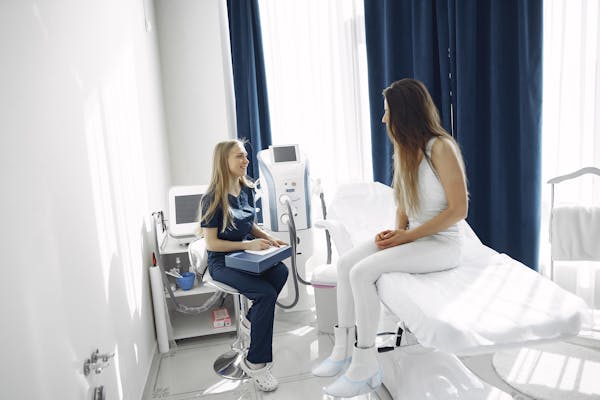
In today’s fast-paced world, health often takes a backseat to other pressing concerns like work, family, and social obligations. However, prioritizing health through regular health screenings is essential for maintaining overall well-being and catching potential issues before they become serious problems. The importance of regular health screenings cannot be overstated, as they play a crucial role in disease prevention, early detection, and effective management of various health conditions.
Understanding Health Screenings
Health screenings are medical tests conducted to check for diseases and conditions before there are any symptoms. These tests can detect issues at an early stage when they are often more treatable and manageable. Screenings vary by age, gender, and individual risk factors, including family history and lifestyle choices. Common screenings include tests for blood pressure, cholesterol levels, blood glucose, and cancer screenings like mammograms, colonoscopies, and Pap smears.
Preventive Health Care
Preventive health care is a proactive approach to medicine that focuses on the prevention of disease and the maintenance of health. Regular health screenings are a cornerstone of preventive health care. They can identify risk factors and detect early signs of disease, allowing for interventions that can prevent the development or progression of illness.
Early Detection
Early detection of diseases through health screenings can significantly improve outcomes. For example, cancers detected at an early stage often have more treatment options and a higher chance of successful outcomes. Breast cancer, cervical cancer, and colorectal cancer screenings can detect cancers before symptoms develop, which is when the disease is most treatable. Early detection of conditions like high blood pressure and high cholesterol can prevent the development of heart disease, which is a leading cause of death globally.
Disease Management
For individuals with chronic conditions, regular health screenings are vital for effective disease management. Conditions like diabetes, hypertension, and cardiovascular disease require continuous monitoring to manage and prevent complications. Regular check-ups and screenings help doctors adjust treatment plans as needed and provide patients with the necessary information to manage their conditions effectively.
The Importance of Regular Health Screenings

Regular health screenings are essential for maintaining overall health and preventing diseases. Here are the key reasons why these screenings are important:
- Early Detection of Diseases:
- Detect diseases such as cancer, diabetes, and heart disease at an early stage when they are more treatable.
- Early intervention can lead to better outcomes and increased survival rates.
- Prevention of Disease Progression:
- Identify risk factors for chronic conditions before they develop into serious illnesses.
- Implement lifestyle changes or medical interventions to prevent the progression of diseases.
- Management of Chronic Conditions:
- Monitor existing health conditions like hypertension, diabetes, and high cholesterol.
- Adjust treatment plans as needed to manage conditions effectively and prevent complications.
- Reduction of Health Care Costs:
- Prevent costly emergency treatments and hospitalizations by catching issues early.
- Reduce the long-term cost of managing chronic diseases through early intervention.
- Improved Quality of Life:
- Maintain overall health and well-being by preventing diseases and managing conditions.
- Avoid the physical and emotional stress associated with advanced diseases.
- Increased Life Expectancy:
- Early detection and treatment of health issues contribute to a longer, healthier life.
- Prevent premature deaths from undiagnosed and untreated conditions.
- Personalized Health Care:
- Develop individualized health plans based on screening results, family history, and risk factors.
- Tailor preventive measures and treatments to each person’s unique health profile.
- Empowerment Through Knowledge:
- Provide individuals with valuable information about their health status.
- Empower people to make informed decisions about their health and lifestyle.
- Psychological Benefits:
- Reduce anxiety and stress by providing reassurance about one’s health.
- Foster a sense of control and proactive engagement in personal health care.
- Promotion of Healthy Behaviors:
- Encourage healthy lifestyle choices by identifying risk factors early.
- Offer opportunities for healthcare providers to educate patients about diet, exercise, and other preventive measures.
Key Screenings and Their Importance

Different health screenings serve various purposes, and understanding the specific benefits of each can underscore the importance of regular health screenings. Here are some key screenings and why they are essential:
Blood Pressure Screening
High blood pressure, or hypertension, is often called the “silent killer” because it typically has no symptoms but can lead to severe complications like heart disease, stroke, and kidney damage. Regular blood pressure screenings can detect hypertension early, allowing for lifestyle changes and medication to manage the condition and reduce the risk of serious health issues.
Cholesterol Screening
High cholesterol is another condition that can quietly damage the body. Elevated levels of LDL cholesterol (the “bad” cholesterol) can lead to plaque buildup in the arteries, increasing the risk of heart attack and stroke. Cholesterol screenings can identify high cholesterol levels, prompting interventions such as dietary changes, increased physical activity, and medications to lower cholesterol and protect heart health.
Blood Glucose Screening
Diabetes is a chronic condition that affects millions of people worldwide. Blood glucose screenings can detect prediabetes and diabetes, enabling early intervention to manage blood sugar levels and prevent complications like neuropathy, retinopathy, and cardiovascular disease. Early diagnosis and management are crucial for maintaining quality of life for individuals with diabetes.
Cancer Screenings
Cancer screenings are among the most critical health checks. They include:
- Mammograms for breast cancer: Detecting breast cancer early significantly improves treatment outcomes and survival rates.
- Pap smears and HPV tests for cervical cancer: These tests can detect changes in cervical cells that may lead to cancer, allowing for early treatment and prevention.
- Colonoscopy for colorectal cancer: This test can identify polyps that may become cancerous, allowing for their removal before cancer develops.
- PSA tests for prostate cancer: Screening for prostate-specific antigen can help detect prostate cancer early.
Tailored Screenings for Different Life Stages
The importance of regular health screenings varies throughout different stages of life. Health care providers recommend specific screenings based on age, gender, and individual risk factors. Here is a breakdown of screenings tailored for different life stages:
Childhood and Adolescence
During these formative years, health screenings focus on growth and development, immunizations, vision and hearing tests, and screenings for conditions such as anemia and obesity. Early detection of issues during childhood can lead to timely interventions that promote healthy development.
Young Adults
In addition to routine check-ups, young adults should start regular screenings for blood pressure, cholesterol, and sexually transmitted infections (STIs). Women should begin cervical cancer screenings with Pap smears starting at age 21. These screenings establish a health baseline and catch potential issues early.
Middle Age
As people enter middle age, the risk of chronic conditions increases. Regular screenings for blood pressure, cholesterol, diabetes, and certain cancers become critical. Women should continue with mammograms and Pap smears, while both men and women should consider screenings for colorectal cancer starting at age 50 or earlier if there is a family history of the disease.
Older Adults
For older adults, regular health screenings focus on managing chronic conditions and preventing complications. Bone density tests for osteoporosis, screenings for cognitive decline, and continued cancer screenings are essential. Vaccinations, such as the flu and pneumonia shots, also play a crucial
role in maintaining health and preventing disease.
The Impact of Lifestyle on Health Screenings
Lifestyle choices significantly impact the necessity and frequency of certain health screenings. Smoking, excessive alcohol consumption, poor diet, and lack of physical activity increase the risk of various diseases, necessitating more frequent monitoring. Conversely, a healthy lifestyle can reduce the frequency and extent of necessary screenings. Understanding this interplay underscores the importance of regular health screenings tailored to individual lifestyle factors.
Smoking and Lung Cancer Screenings
Smoking is a leading cause of lung cancer, and regular screenings with low-dose computed tomography (LDCT) are recommended for long-term smokers. Early detection through these screenings can significantly improve survival rates. Smoking cessation programs, alongside regular screenings, provide the best strategy for lung health.
Alcohol Consumption and Liver Health
Excessive alcohol consumption can lead to liver disease, including cirrhosis and liver cancer. Regular liver function tests and screenings for liver cancer are crucial for individuals with heavy alcohol use. Early intervention can prevent severe liver damage and improve long-term outcomes.
Diet, Exercise, and Metabolic Health
A poor diet and sedentary lifestyle contribute to obesity, diabetes, and cardiovascular disease. Regular screenings for blood pressure, cholesterol, and blood glucose levels are essential for individuals with unhealthy lifestyle habits. Conversely, a healthy diet and regular exercise can mitigate these risks, though screenings remain important for early detection and prevention.
Psychological Benefits of Regular Health Screenings
The importance of regular health screenings extends beyond physical health; they also provide significant psychological benefits. Knowing that one is proactively managing their health can reduce anxiety and stress related to potential health issues. Regular check-ups create a structured approach to health care, fostering a sense of control and empowerment over one’s health.
Reducing Health Anxiety
Health anxiety, or hypochondria, is a condition where individuals excessively worry about their health. Regular health screenings provide concrete information and reassurance, helping to alleviate these worries. Clear communication from health care providers about screening results and the next steps can further reduce anxiety.
Encouraging Health-Conscious Behaviors
Regular health screenings serve as a reminder to maintain healthy behaviors. They create opportunities for health care providers to educate patients about lifestyle choices, vaccination schedules, and preventive measures. This ongoing dialogue promotes a proactive approach to health, encouraging individuals to make informed decisions about their well-being.
Barriers to Regular Health Screenings
Despite the clear benefits, several barriers prevent individuals from participating in regular health screenings. Addressing these barriers is essential for improving public health outcomes.
Financial Constraints
The cost of health care can be a significant barrier to regular health screenings. Even with insurance, copayments, and deductibles can be prohibitive for some individuals. Expanding access to affordable health care and implementing policies that reduce the financial burden of screenings are critical for increasing participation rates.
Lack of Awareness
Many people are unaware of the importance of regular health screenings or do not know which screenings are necessary for their age and risk factors. Public health campaigns and education initiatives can raise awareness and encourage individuals to seek appropriate screenings.
Accessibility Issues
Geographical location and availability of health care services also impact access to screenings. Rural areas often have fewer healthcare providers and facilities, making it challenging for residents to receive regular screenings. Mobile health clinics, telemedicine, and other innovative solutions can help bridge this gap.
Fear and Misinformation
Fear of medical procedures and misinformation about screenings can deter individuals from participating. Providing clear, accurate information about the benefits and risks of screenings, as well as addressing common misconceptions, can help reduce fear and encourage participation.
The Role of Health Care Providers
Healthcare providers play a pivotal role in emphasizing the importance of regular health screenings. By fostering a strong patient-provider relationship and prioritizing preventive care, providers can encourage regular participation in screenings.
Personalized Screening Plans
Providers should develop personalized screening plans based on individual risk factors, family history, and lifestyle choices. Tailoring screening recommendations ensures that patients receive the most relevant and necessary tests, improving the overall effectiveness of preventive care.
Patient Education
Educating patients about the purpose and benefits of health screenings is crucial. Providers should take the time to explain why certain screenings are recommended, how they are performed, and what the potential outcomes might be. This education helps demystify the process and encourages patient compliance.
Follow-Up and Support
Regular follow-up and support are essential for maintaining patient engagement in health screenings. Providers should establish a system for reminding patients of upcoming screenings and follow up on any abnormal results promptly. Offering support and resources for further testing or treatment when necessary ensures that patients feel supported throughout their healthcare journey.
The Future of Health Screenings
Advancements in technology and medical research continue to shape the future of health screenings. Emerging technologies and personalized medicine promise to enhance the accuracy, efficiency, and accessibility of screenings, further underscoring their importance in preventive health care.
Genetic Screening
Genetic screening is becoming increasingly accessible and can identify individuals at high risk for certain hereditary conditions, including cancers and cardiovascular diseases. Early identification of genetic risk factors allows for targeted preventive measures and personalized screening plans.
Telehealth and Remote Monitoring
Telehealth and remote monitoring technologies enable healthcare providers to conduct screenings and monitor chronic conditions from a distance. These innovations improve access to care, especially for individuals in remote or underserved areas, and ensure continuous health monitoring.
Artificial Intelligence and Machine Learning
Artificial intelligence (AI) and machine learning are transforming health screenings by improving the accuracy of diagnostic tools and predictive models. AI algorithms can analyze medical images, detect abnormalities, and predict disease risk with high accuracy, enhancing the early detection and prevention capabilities of health screenings.
Conclusion
The importance of regular health screenings in maintaining overall health and well-being cannot be overstated. These screenings are a vital component of preventive health care, enabling early detection and management of diseases before they become severe. By identifying risk factors and catching health issues early, regular health screenings save lives, reduce the burden of chronic diseases, and improve quality of life.
Healthcare providers, public health initiatives, and advancements in medical technology all play crucial roles in promoting the importance of regular health screenings. Overcoming barriers to access and increasing public awareness are essential for ensuring that everyone can benefit from these critical preventive measures. As we move forward, the continued evolution of health screenings promises to enhance our ability to detect and manage health conditions, paving the way for a healthier future for all.
By prioritizing the importance of regular health screenings, individuals can take proactive steps towards better health, making informed decisions that support long-term well-being. Whether through routine blood pressure checks, cancer screenings, or emerging genetic tests, the commitment to regular health screenings is a powerful tool in the fight against disease and a cornerstone of a healthy life.






